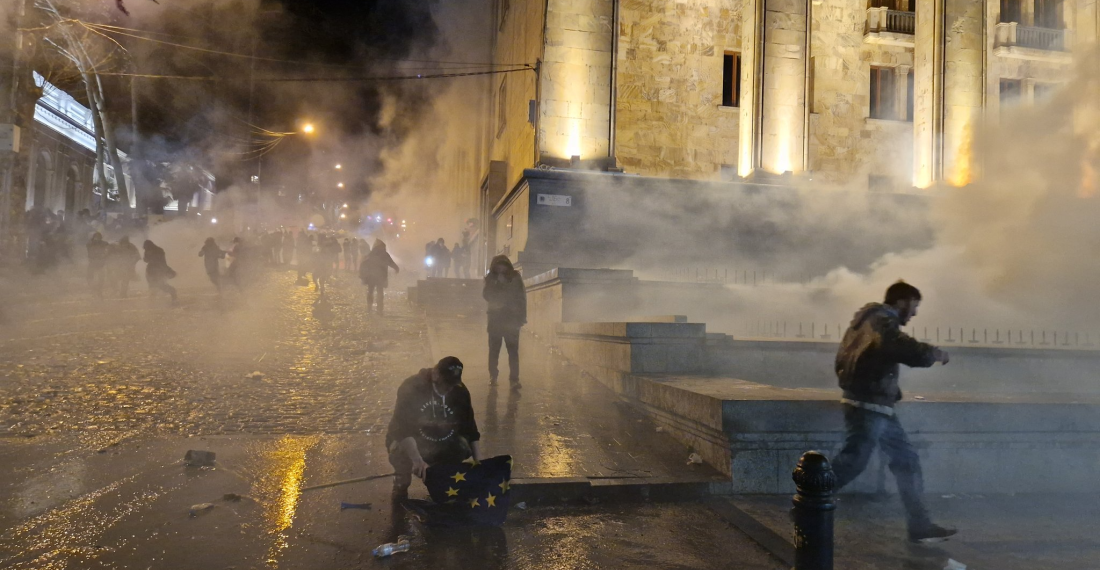Tbilisi's central Rustaveli Avenue was in turmoil last night (7-8 March) as thousands came out to protest against a proposed foreign agent law that had been backed in parliament earlier on 7 March.
It was the second day of large protests in the Georgian capital over the proposed law, with a large group having gathered at the back of the parliament building on Monday (6 March) as the law was debated in parliamentary committee meetings, which themselves led to scuffles between parliamentarians.
Yesterday's protests in Tbilisi grew in size as the sun set, and riot police were deployed to control the protesters whereupon scuffles between them began.
Protesters waved EU and Georgian flags, the EU and Ukrainian national anthems were also heard, and protesters chanted anti-government slogans.
Riot police employed increasing force to disperse the protesters, including using water cannon and large amounts of tear gas.
Some protesters were seen falling on the ground and coughing, and journalists on the ground also reported choking and being unable to breathe because of the quantity of tear gas used against the protesters.
The government says several policemen were hurt and police gear was damaged.
"Chaos"
Soon after midnight local time, videos emerged of protesters breaking down the barricade at the main entrance of the parliament building, but no protesters have been reported to have made it inside.
Further rounds of tear gas were released, and riot police began to clear Rustaveli Avenue in the early hours of the morning, clearing the area in front of the parliament. Some protesters were also arrested, it has been reported.
OC Media journalist Mariam Nikuradze, who was covering the protests online, described the events as "chaos".
What is the proposed law on foreign agents?
The draft law, which copies a similar law infamously introduced in Russia in 2012, would brand media, NGOs, and other civil society organisations that receive more than 20% of their funding from foreign sources as "agents of foreign influence".
This would require them to register in a Foreign Influence Agents Registry, and failure to do so would result in fines of up to 25,000 laris (€8,960).
The bill was introduced on 14 February by a group of pro-government MPs who formally left the ruling Georgian Dream party last year, albeit with the party’s support, to "speak openly" about an alleged Western conspiracy to "drag Georgia into war with Russia".






